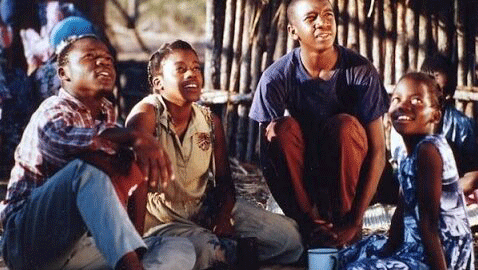
By with Fred Zindi As a parent, have you ever considered getting your children to learn to play a musical instrument? A lot of parents have asked me what the right age for teaching children to learn music is.
What I often tell them is that if you want to introduce your child to a music instrument, it’s best to wait until around the age of 5. That’s because they must be able to sit and pay attention for half an hour and accept that they won’t be making music right away. Plus, once your kid hits primary school, they’re developing their own musical tastes. They are physically able to hold most instruments comfortably, and they have the finger strength required to play.
Starting formal lessons too early (when they’re likely to get bored and frustrated) can turn your little one off music for good. If your child is ready before age 5, you will know it by their intense interest in Grandma’s piano or Daddy’s guitar.
Playing an instrument has plenty of benefits for a child. Research has shown that it helps improve academic and social skills, promotes discipline and boosts self-esteem.
Many parents these days want their children to participate in extra-curricular activities and music is one such activity that kids would love to learn and indulge themselves. The sonic curiosity and the sheer thrill of being able to play an instrument, being inspired by their favourite artiste, band, film or television show, having an inclination towards music, a keen interest in music creation; or to be able to sing or play a favourite song for friends; are some of the reasons kids love to learn music. Some might even make music their career and end up in its lucrative industry.
Not many Zimbabwean parents believe that there is a future in the music industry. As a result, many are negative about the prospects of having their children build careers in music. It is, however, crucial to have supportive parents if one is to make a successful career out of music.
A lot of artistes who have made the music we enjoy today have done it through their own volition. Many have done it out of boredom or out of the need to find some kind of employment in these hard economic times.
Sometimes the best thing parents can do for a creative person is to give them the space to create. It’s a small gesture but could be more important than any money or connections.
- Chamisa under fire over US$120K donation
- Mavhunga puts DeMbare into Chibuku quarterfinals
- Pension funds bet on Cabora Bassa oilfields
- Councils defy govt fire tender directive
Keep Reading
We all have experienced fear, especially when it comes to being in front of a crowd and performing or showing our skills. This fear sets in when a child does not have enough exposure to such activity. Who doesn’t want their child to be a public speaker, an orator or an influencer? To make them that confident, your first step will be to encourage them and to give them the confidence to perform on stage. It could be anywhere: during school annual day, inter-school music competition, performances in your society during Christmas or New Year’s Eve and many more. The process of rehearsing multiple times and being a good team player and a team leader results in excellent personality development and boosts their confidence in general.
Once they enjoy the process of showcasing their talent publicly, the sky is the limit. What children should be encouraged not to do is being shy, especially when asked to perform publicly. Shyness will prohibit children from showing off their fullest potential.
If the family finances allow it, it is a good thing to buy one’s child a musical instrument such as the guitar, piano, violin, mbira, the saxophone, the trumpet, marimba, a drum-kit and even a banjo depending on what it is that child is interested in. Let them learn and practise on that instrument until they are exhausted.
As I suggested earlier that age 5 is probably the best age to start off a child in learning a musical instrument, there is no fixed age for learning music. You can learn music whenever and I would personally suggest the parents sit through with their kids when they are practising music at home. Kids love it when they teach something to their parents and they could genuinely ask their children to teach them every tune/scale/song or whatever they learn in class. This becomes a fantastic family bonding activity and the practice session ends up being a lot more productive for the child and the parent to understand how much their child is inclined towards the instrument or music as a whole.
If it’s your spouse’s birthday,do you have a playlist of his/her favourite songs? To make a list, listen to the songs that your mother or father sings every now and again be it church songs, pop songs or songs from their favourite artistes.Your children will surely end up learning one of your favourite songs and play it for you on your birthday or your anniversary. That’s the best gift you can ever get.
Musical films have a fantastic and instant impact on kids. Making them watch such musical films not only gets the brain wrapped up around the catchy melodic hooks, but also boosts their imagination subconsciously. In today’s time, a lot of animated movies and cartoon films have excellent background scores and music. Musical films made in Zimbabwe such as Ngoma, Music for Stress, Everyone’s Child, Jungle Beat, Yellow Card, More Time, Neria, Jit, The Zimbabwe Marimba of Alport Mhlanga and many more, will make an impact on children’s musical thinking.
Western films such as Sound of Music, Alladin, Lion King, Frozen, Coco, August Rush, and more are also a great introduction to Disney’s musical films. A lot of competitive music examination boards have understood the popularity and musical offerings of such songs and pieces and have made their way into the examination module at various grades. Learning the melodies and sequences of these pieces makes a child feel a lot more confident and more importantly, the fun factor of playing these tunes in front of friends and family comes to them naturally.
As a kid, I remember watching King Solomon’s Mines in the cinemas. I still remember how those big drum sounds, the various rhythm patterns, and wind instrument melodies caught my attention. I haven’t seen that movie in 30 years but I still remember all the catchy hooks and can identify the songs within seconds. That’s the power of music on the subconscious mind.
Hiring a music trainer is like getting your child mentored. A mentor will always understand the musical needs and aspirations of his/her students and ensure to make the teaching methods/module a lot more robust and flexible without losing focus from the final objective.
Music-based games could be anything. You think of an idea and try to see how and where music fits in it. The most common game we used to playback in the day was musical chairs.
We learned very little out of it, to be honest, but we knew that we had to grab a chair when the music stops. That only helped us to pay careful attention to the music and to know when it stopped.
The other fun-based game for all age groups could be a little tricky, but it’s an excellent family activity and a game.
Learning and identifying different musical instruments from across the world such as the ukulele or the kora.
Being able to identify instruments by sound is also a skill that requires a lot of focus. Once you think you and your children/child have learned about 5 new instruments in each category, maybe you could take it a little further ahead and teach and learn about its origin. A very interesting presentation your child could give at a school exhibition or project.
There is so much to learn and much more to share. Learning music constantly and up-scaling is like sharpening all your tools and constantly crafting ideas that will make your kids stand way ahead of the curve. Learning music and musical pieces thoroughly means attention to detail.
Understanding and being able to identify and demonstrate every layer or an idea is like mastering something to its depth. That’s a personal trait that makes your kids a little more aware and gives them the freedom to think and improvise on the spot and be effective with their delivery. This applies everywhere in the world whether one is African, Asian, European or Arab and helps your children to dig deeper and see what interests them the most and to what extent they are willing to put in their work and creativity to get the best out of it.
Indeed, you can get your kids to love music.
- Feedback: [email protected]










